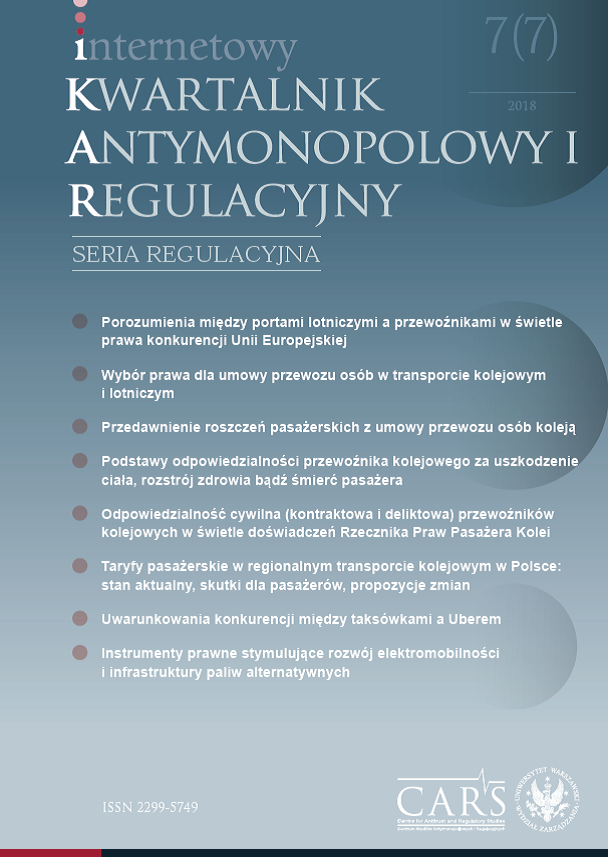Taryfy pasażerskie w regionalnym transporcie kolejowym w Polsce: stan aktualny, skutki dla pasażerów, propozycje zmian
Passenger tariffs in regional railway transportation in Poland: status quo, implications for passengers, proposals of changes
Author(s): Przemysław KowalikSubject(s): Business Economy / Management, Commercial Law
Published by: Wydawnictwo Naukowe Wydziału Zarządzania Uniwersytetu Warszawskiego
Keywords: Railway passenger transport; railway tariffs; tariff information; timetable information
Summary/Abstract: Regional railway transportation in Poland in the second decade of the 21st century is characterized by a remarkable complexity of tariff solutions. This is primarily caused by the existence of many train operators with their own tariff systems as well as ‘territorially restricted’ tariffs applied by one or more operators. The above status quo may greatly affect the decisions of passengers regarding their railway journeys. The first issue connected with those decisions results from the often complicated rules of cross-operator ticket acceptance (unilateral, bilateral, sale channel-dependent, none). Another issue lies in perceived discrimination in access to tariff information and sale of certain types of tickets, resulting from the way in which train operators’ internet sale systems operate (which, besides their sale functionality, can also be used for informational purposes). Those systems do not provide timetables and pricing information on connections partially or entirely served by other operators, even if they accept tickets issued by the given operator. A similar problem may occur even in case of pricing connections offered by a single operator. The cheapest possible tickets – even when available online – may not be offered ‘automatically’ and passengers have to select them ‘manually’ on the basis of pre-existing knowledge of pricing rules. Information about some pricing options may be available in text documents only and not implemented in sale systems. An improvement of availability of tariff information in the cases mentioned above can be achieved in two ways. The first one refers to ‘multi-operator’ connections and can be described as extending information obligations of train operators to cover all the connections for which they sell tickets. The second refers to the sometimes unavailable ‘automatic’ pricing of the cheapest tickets for connections offered by a single operator. It consists of ‘redesigning’ the rules of construction of ‘territorially restricted’ tariffs towards their utilization – already built-in in the internet sale systems – the rules of pricing tickets for journeys on trains of various categories.
Journal: internetowy Kwartalnik Antymonopolowy i Regulacyjny (iKAR)
- Issue Year: 7/2018
- Issue No: 7
- Page Range: 70-82
- Page Count: 13
- Language: Polish

